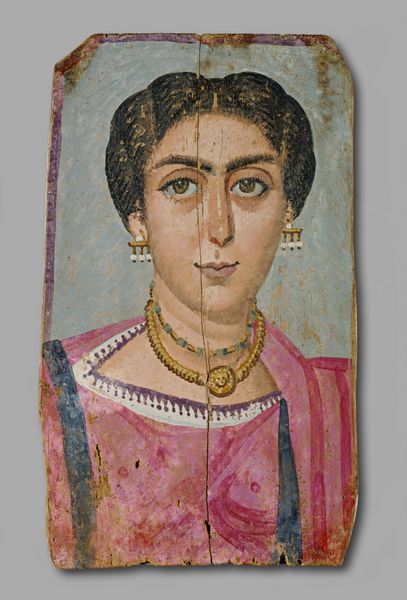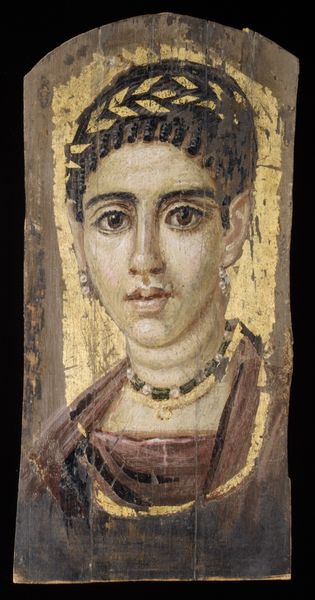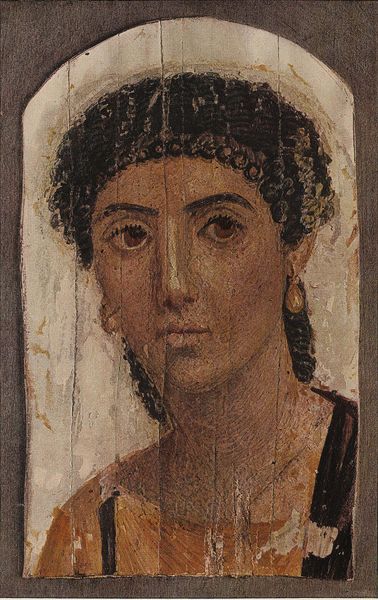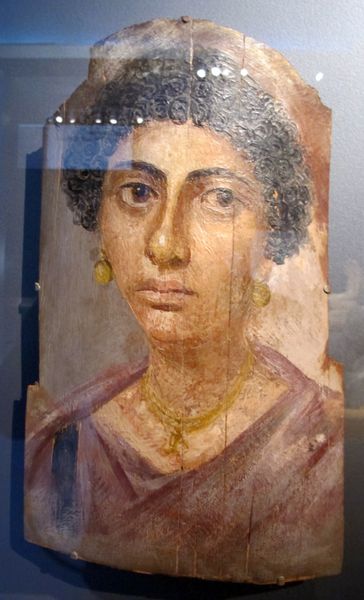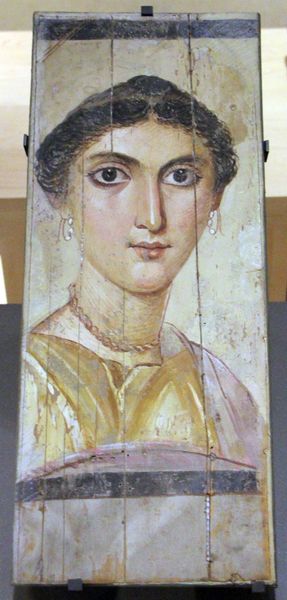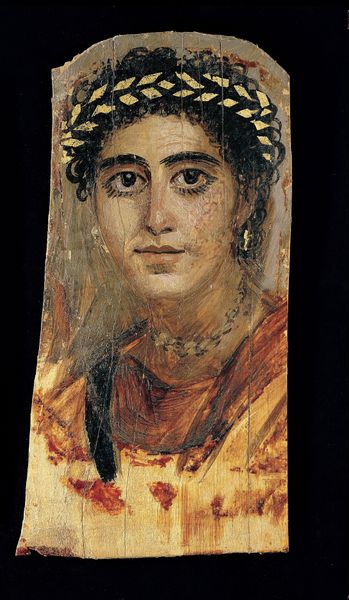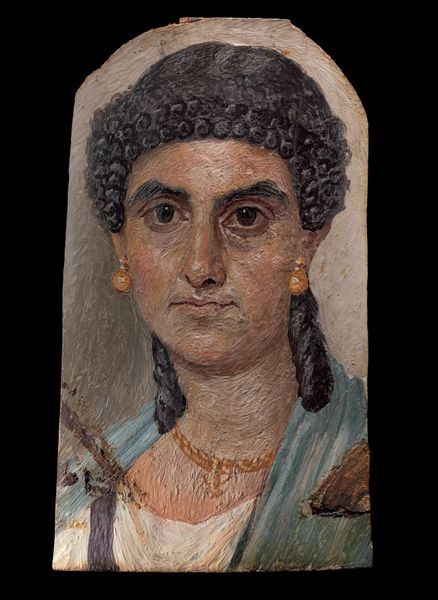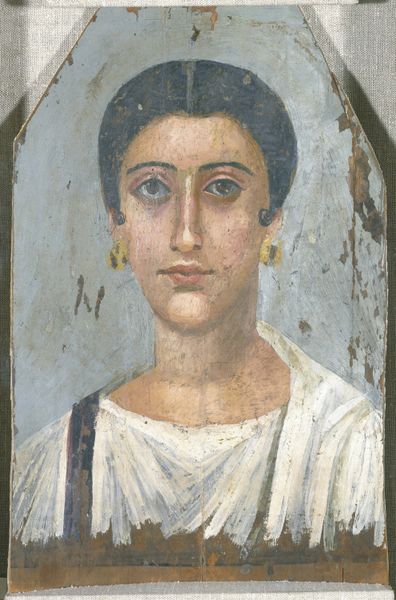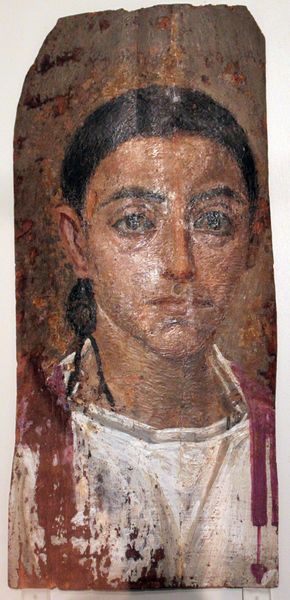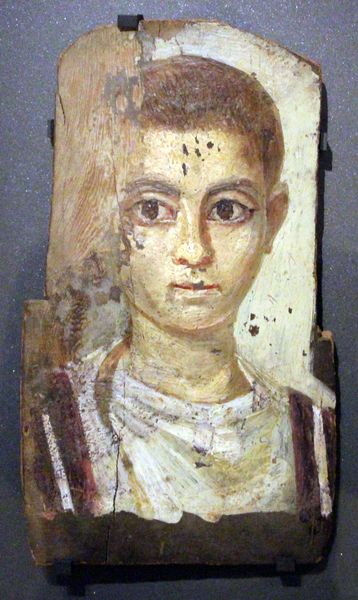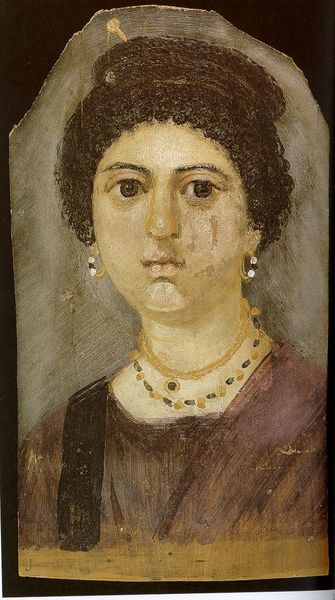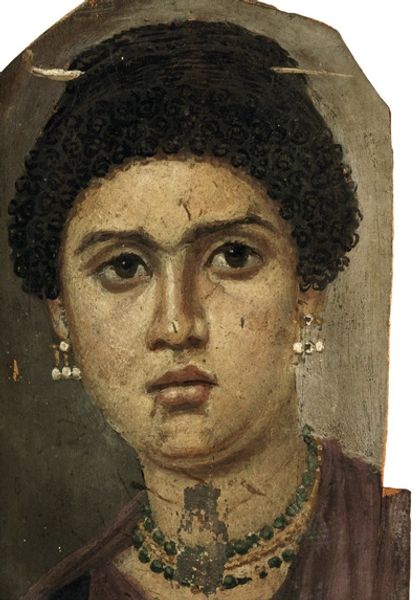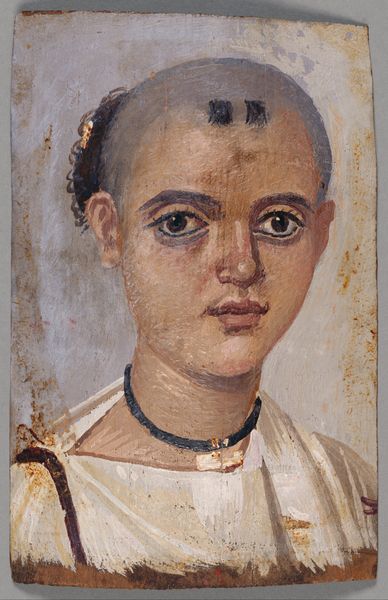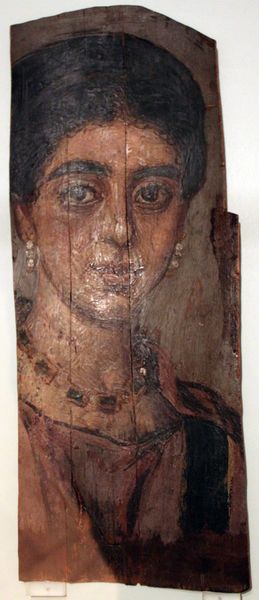
tempera, painting
#
portrait
#
tempera
#
painting
#
greek-and-roman-art
#
ancient-egyptian-art
#
ancient-mediterranean
#
nude
Copyright: Public domain
Editor: Here we have the "Mummy Portrait of a Young Woman," created around 200 AD using tempera. It's currently housed in the J. Paul Getty Museum. The piece strikes me as very direct; the woman’s gaze is so intense. What stands out to you in terms of its construction? Curator: I’m immediately drawn to the formal interplay between the Greek-Roman naturalism in the portraiture and the Ancient Egyptian tradition it was part of. Notice how the artist employs linear brushstrokes, almost a graphic sensibility, to define the drapery, juxtaposed with a more refined treatment of the face. Editor: So, the face shows more attention to detail than the clothing, right? Curator: Precisely. Observe how the face achieves a sense of volume and individual character, achieved through subtle gradations of color. However, the body and clothing are flatter, more stylized, relying on line to denote form. What effect does this contrast create, do you think? Editor: I guess it emphasizes the face and makes the woman’s expression the most important thing. It's almost like the clothing is secondary, or just symbolic. Curator: Exactly. And consider the texture created by the tempera itself. The paint's matte finish absorbs light, giving the portrait a tactile presence. Furthermore, contemplate the structural implications of the support upon which the image is painted; its physical boundaries dictate and define the composition. Editor: I see what you mean. I never thought about how the shape of the wood affected the whole picture, not just what’s painted on it! Curator: Indeed. Appreciating these formal relationships enhances our understanding beyond mere representation. Editor: This was great; thank you. It's interesting how analyzing these aspects really opens up the meaning.
Comments
No comments
Be the first to comment and join the conversation on the ultimate creative platform.
